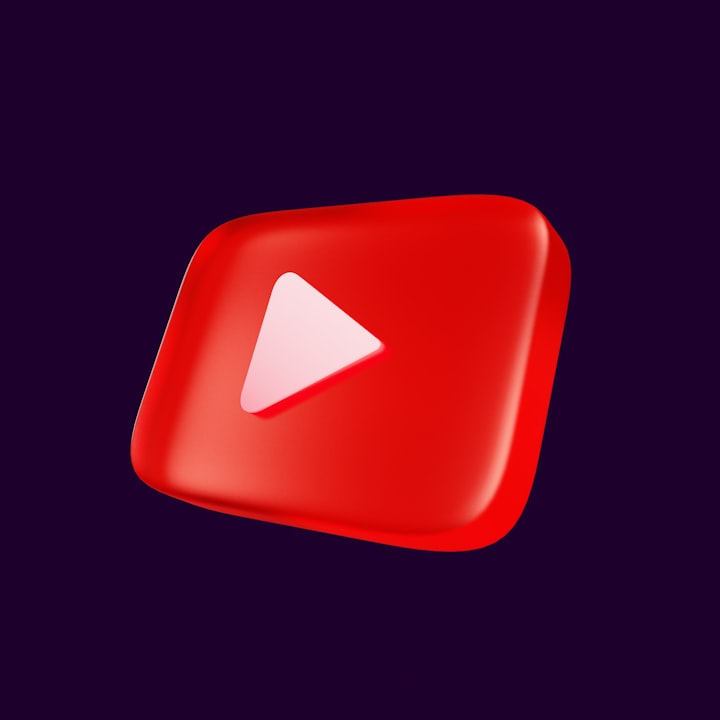How I got to Vocal and What I’ve Learned so far
From Newbie To Newbie

Pleased to meet you. My name is Thavien Yliaster, and I’d like to tell you about how I came across Vocal Media, and what I’ve learned from it.
My first encounter with Vocal.Media
I came across an ad for Vocal Media on Instagram when their writing challenge, “Return of the Night Owl,” was open. When I saw it, especially the reward money for it, I was naturally skeptical. One of the reasons for my skepticism was that I recently helped a good friend of mine escape a multi-level marketing company’s e-commerce culture. When I saw other ads for Vocal Media on Instagram where people were discussing how much they could earn from people reading their writing, I was even more suspicious.
So, I debated it for several days. I eventually told myself, “If you never explore and find out for yourself, you will never learn, nor will you grow.” I did a bit of research from reviews, articles, and YouTube videos from a few other sources. Then I decided to make an account.
Upon making my account I was greeted with the terms of service and community guidelines. From there I was left to decide which type of content I should make. Publishing was completely new to me. I had questions such as, “What content should I make? Who’s my audience? How do I cater to my audience? How do I continue to produce content on a consistent basis? What schedule am I going to need to produce content on a consistent basis, but to continue to have a proper work life balance?”
I don’t have an answer for each and everyone of these questions specifically, but so far I like to think I’ve done well for myself as a beginner.
Content Production
1. When it first came to providing content I looked through my file explorer for old stories and poems that I made.
2. From there I decided to make a folder specifically meant for vocal.media and other online publishing platforms.
3. I made a template folder for stories and poems. Within that template folder I made templates with Microsoft Word Documents and Microsoft PowerPoints. I also use Google Documents and am fond of downloading them as PDF. Templating can help cut down on time that you would normally spend on formatting when starting a new story, poem, article, etc. when you begin to write. Having a few letters in place for your format I find does help to keep the format in your desired, well, uh- format.

4. I use copyright free websites that help to provide pictures that are needed to have works published on sites like Vocal.
4. a. “The Website Mistake that Cost Me $500” by Shamona Pretz really was a big help to me as a beginner (please search for the article on Vocal and give it a read yourself). From there I’ve become accustomed to websites like Unsplash, Pixabay, and Pexels since images from Google are not always copyright free. Even if you are to properly source something you could end up paying fines later on down the road.
4. b. That being typed, you’re not always going to find the exact image you’re looking for. Unless you plan on drawing, taking photos yourself, or commissioning a photographer or artists, learning to accept the resources given to you is a practice in gratitude and I can say has helped me from being less stubborn when it comes to finding “the right image.” Sometimes we end up searching for images that have the right mood, feeling, texture, art style, etc. When “close enough,” or “good enough” gets the job done just fine. Another thing is, you don’t always have to use a picture for your story. Sometimes, letting the words speak for themselves is more than enough as it is. As the phrase goes, “less is more.” Personally I like to think that “if a picture means a thousand words, you don’t necessarily get to choose the words that people interpret to that picture. However, if you use a thousand words, you may be able to just as accurately describe the picture you’re trying to convey.”
5. Carry a pen and notebook around with you. Your brain is full and already has enough on its plate just trying to keep your body in homeostasis let alone alert to current needs internal and external of your body. By writing things down you allow your thought processes to move on from lingering on one though, to another. It’s like you built a new link in the neuron chain, allowing you to construct the next link that helps to strengthen the chain you have composed. Write down ideas. I like to write down titles, subtitles, and poems in my notebooks. By writing those ideas down, it allows me to further the development of the same idea or to move forward with another one. It’s like I’m clearing my mental library by freeing up space. Having a notebook, journal, or even just texting something in an available cellular device sort of allows the writing to think for itself and allows you to get back to thinking on other things. For example, if I never wrote about “Living In Accordance With My Will” I would not have come across the inspiration needed for “Energy Allocation.” Since my mind would have been focused on the prior in and struggled to move on to the later. When you free up your mind, you also free up your time.
5. a. Pssst, plus if you want to always seem busy, carrying around a pen and notebook makes people think that you’re always working. You appear like a person who’s got a mindset with the grindset.
6. Transcribe from your notes, journal, phone, etc. to something that you will use whether it’s Microsoft Word, Google Docs, or even Vocal’s writing platform itself. You don’t always have to publish something when you write it. You can sit on it if you like and revisit it at a later date. You don’t always have to publish if you don’t feel like it.
7. Have a good work-life balance. Set aside time blocks that you dedicate to your writing. If you’re hitting a writer’s block you could do some chores like cleaning your living area, meal prepping, cooking a prepped meal, exercising/working out, socializing with family and friends, or just write something different.
8. Just write. Even if you don’t enjoy what you’re writing, if you just start you have a foundation or template that you can work off of. You now have something that you can either accept, correct, or reject. However, not having anything at all provides you with too many options and may lead to you having decision fatigue. I’ve known all too often what it’s like to encounter analysis paralysis. Being overwhelmed with too much information and choices can make it more difficult to actually decide on what you want to do, especially with the limited time that you have. Sometimes it’s better to make a decision so you have experience to learn from such a decision, than if you never made a decision at all, meaning that you still lack experience of what you should do personally for yourself and your own goals. Hence making a commitment may feel like you’re chaining yourself down, but it will also free you from a lack of progression and also make you feel like you have a set purpose to strive for.
9. Review your work. Check for grammar and spelling mistakes, because you’re more than likely bound to find something later on or an eventually discover a different phrasing that you’ll have a higher affinity for.
10. Sometimes reviewing your older work can help provide inspiration for newer works. If not, make a rework. You can always change the way a chapter or two works out. Remember you’re the creator. You get to decide which parts of your stories are real in their worlds or not.
Contact the Support Staff
Don’t feel afraid to ask for help. Contact the support staff for help when you need it. However, remember, they’re people just like you and I. They review our work when it's been submitted, respond to our emails, and credit us for our stories/work. They’re human just like us. Treat them with dignity and respect as you’d wish for somebody else to treat you or somebody you’d love with the same dignity and respect.
They want you to succeed and do well, since when you do well, it also helps for their platform to do well too. That being typed, they are not going to promote or sponsor your work for you. That’s your job to network, share, and to spread the word of your published works.
Platforming
It’s not just, “What you put in is what you get out,” but also more of a “what you put out is what you allow to come in.” You don’t just put your work onto Vocal, but you should spread it far and wide trying to reach your audience in places where they might not know about platforms like Vocal.
There are other writing platforms out there. One that I came across when I was researching about Vocal is Medium. You can import your stories from Vocal there. You can also make videos about your stories for YouTube, Patreon, Twitter, FaceBook, Instagram, etc. As the phrase goes, “the world is your oyster.”

Sorry about the long ramble, but I hope that this helps. If you’d like me to tell you about how I make my YouTube videos please feel free to tap the heart, leave some insights, and/or leave a comment (I was genuinely surprised that Vocal added that new feature to their platform, it sort of helps to make things and people more integrated).







Comments
There are no comments for this story
Be the first to respond and start the conversation.